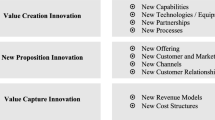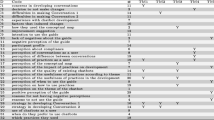Abstract
This study explores the integration of ChatGPT and AI-generated content (AIGC) in engineering management. It assesses the impact of AIGC services on engineering management processes, mapping out the potential development of AIGC in various engineering functions. The study categorizes AIGC services within the domain of engineering management and conceptualizes an AIGC-aided engineering lifecycle. It also identifies key challenges and emerging trends associated with AIGC. The challenges highlighted are ethical considerations, reliability, and robustness in engineering management. The emerging trends are centered on AIGC-aided optimization design, AIGC-aided engineering consulting, and AIGC-aided green engineering initiatives.
Similar content being viewed by others
References
Baidoo-Anu D, Owusu Ansah L (2023). Education in the era of generative artificial intelligence (AI): Understanding the potential benefits of ChatGPT in promoting teaching and learning. Journal of AI, 7(1): 52–62
Blanchard B S (2004). System Engineering Management. Hoboken, NJ: John Wiley & Sons
Cao Y, Li S, Liu Y, Yan Z, Dai Y, Yu P S, Sun L (2023). A comprehensive survey of AI-generated content (AIGC): A history of generative AI from GAN to ChatGPT. arXiv preprint. arXiv:2303.04226
Cheng K, Neisch P, Cui T (2023). From concept to space: A new perspective on AIGC-involved attribute translation. Digital Creativity, 34(3): 211–229
Du H, Li Z, Niyato D, Kang J, Xiong Z, Shen X, Kim D I (2023). Enabling AI-generated content (AIGC) services in wireless edge networks. arXiv preprint. arXiv:2301.03220
Epstein Z, Hertzmann A, The Investigators of Human Creativity (2023). Art and the science of generative AI. Science, 380(6650): 1110–1111
Gravel B E, Svihla V (2021). Fostering heterogeneous engineering through whole-class design work. Journal of the Learning Sciences, 30(2): 279–329
Guo B, Zhang X, Wang Z, Jiang M, Nie J, Ding Y, Yue J, Wu Y (2023). How close is ChatGPT to human experts? Comparison corpus, evaluation, and detection. arXiv preprint. arXiv:2301.07597
Jin Z (2023). Analysis of the technical principles of ChatGPT and prospects for pre-trained large models. In: 3rd International Conference on Information Technology, Big Data and Artificial Intelligence. Chongqing: IEEE, 1755–1758
Jo A (2023). The promise and peril of generative AI. Nature, 614(1): 214–216
Lv Y (2023). Artificial intelligence-generated content in intelligent transportation systems: Learning to copy, change, and create. IEEE Intelligent Transportation Systems Magazine, 15(5): 2–3
Nielsen J (1992). The usability engineering life cycle. Computer, 25(3): 12–22
Skibniewski M J (2014). Research trends in information technology applications in construction safety engineering and management. Frontiers of Engineering Management, 1(3): 246–259
Thorp H H (2023). ChatGPT is fun, but not an author. Science, 379(6630): 313–313
van Dis E A M, Bollen J, Zuidema W, van Rooij R, Bockting C L (2023). ChatGPT: Five priorities for research. Nature, 614(7947): 224–226
Vaswani A, Shazeer N, Parmar N, Uszkoreit J, Jones L, Gomez A N, Kaiser L, Polosukhin I (2017). Attention is all you need. In: Proceedings of the 31st International Conference on Neural Information Processing Systems. Long Beach, CA: Curran Associates Inc., 6000–6010
Yang F, Wang M (2020). A review of systematic evaluation and improvement in the big data environment. Frontiers of Engineering Management, 7(1): 27–46
Author information
Authors and Affiliations
Corresponding author
Ethics declarations
Competing Interests The authors declare that they have no competing interests.
Rights and permissions
About this article
Cite this article
Yu, Z., Gong, Y. ChatGPT, AI-generated content, and engineering management. Front. Eng. Manag. 11, 159–166 (2024). https://doi.org/10.1007/s42524-023-0289-6
Received:
Revised:
Accepted:
Published:
Issue Date:
DOI: https://doi.org/10.1007/s42524-023-0289-6




